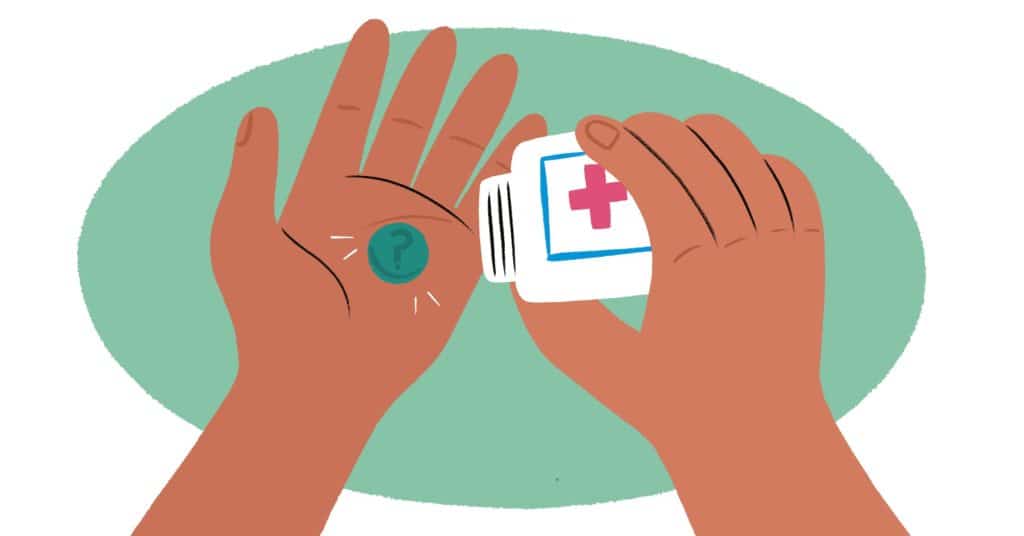
By Mary Fetzer
It’s official: The U.S. Food and Drug Administration on Oct. 14 declared a nationwide shortage of Adderall that is expected to continue at least through the end of the year.
Teva — a pharmaceutical company based in Israel and the top supplier of both branded and generic version of Adderall in the United States, according to Bloomberg News — was the first to declare a supply chain problem for the medication commonly used to treat ADHD. Since Teva announced manufacturing delays in August, four other manufacturers of generic versions or alternatives have also reported being unable to meet demand.
Adderall is a controlled, highly regulated substance that contains amphetamine, a stimulant that is effective in treating ADHD symptoms. The generic verison of Adderall is called amphetamine-dextroamphetamine. In 2021, U.S. prescriptions for Adderall and the generic equivalents rose to 41.4 million, up more than 10 percent from 2020 and 16 percent from 2019, according to IQVIA, a data analytics provider for the life sciences.
Increased Demand May Be Contributing to Shortage
Some experts, according to a report by NBC News, suggest that more awareness about ADHD has contributed to the increased demand and subsequent shortage. Additionally. more adults in the U.S. report symptoms of anxiety and depression since the COVID-19 pandemic, according to a study on the implications of COVID-19 for mental health and substance abuse.
Rising demand is just one of “multiple factors” contributing to the “intermittent backorders,” according to Teva spokesperson Kelley Dougherty. She told The Washington Post that a shortage in labor and regulatory limitations on the distribution of Adderall have impacted the supply problem as well.
“These products are Schedule II controlled substances and to ensure patient safety, are closely monitored” by the federal Drug Enforcement Agency, Dougherty told the Post. The agency also sets caps on the amount of product manufactured each year, which can constrain product availability.
Further, a national survey by the Centers for Disease Control and Prevention indicated that consumers were stockpiling medications at the start of the pandemic in response to early recommendations from the CDC. But there are also concerns that the drug is being overprescribed and potentially taken improperly or abused.
To survey pandemic behavioral health prescription trends, Arrive Health — a vendor of prescription benefit services to hospitals and health systems — looked at 14.09 million prescription transactions from February 2020 through September 2022.
“Stimulant medications for ADHD saw transactions significantly increase over the last two-and-a-half years, from a low 1.1% of our total transaction volumes in Feb. 2020 to 2.31% in Sept. 2022,” said Adam Rosenberg, director of marketing at Arrive Health. “This data indicates significant increases in ADHD prescribing, which may have an effect on the medication shortages we are seeing today.”
What To Do: Tips on Dealing with the Adderall Shortage
Shop Around
Consumers of Adderall should note that the shortage may not affect all pharmacies in the same way. Mark Cavitt, the director of pediatric psychiatry services at Johns Hopkins All Children’s Hospital in St. Petersburg, Fla., told The Washington Post that he advises his patients to call different pharmacies to see if they have Adderall in stock. Because the drug is highly regulated, however, some pharmacists may be unwilling to disclose availability without a written prescription, so consumers may need to work with their healthcare provider and pharmacies simultaneously.
Consider Alternative Treatments
People who’ve been prescribed but are unable to get it should reach out to their doctors to find alternative treatments. This may include taking a different medication, even if only temporarily.
“There are a number of other amphetamine products that you can convert people to safely, and they’re equally effective,” Timothy Wilens, an ADHD expert at Massachusetts General Hospital, told The Washington Post. “So, there is a solution to it.”
Make Other Accommodations
Sanam Hafeez, director of Comprehend the Mind in New York City, recommends making other adjustments as well.
“When we recommend medication, we also recommend a slew of other accommodations,” Hafeez told The Washington Post. Examples include using noise-canceling headphones, setting timers and alarms or taking small movement breaks. On its own, each change might make just a small difference. Collectively, they could have a positive impact on ADHD symptoms.
Hafeez also encourages cognitive behavioral therapy, which can help people with ADHD change their way of thinking while working on the daily issues they face as a result of their condition.
Sources:
U.S. Food and Drug Administration: FDA Announces Shortage of Adderall
Bloomberg: Teva’s Adderall Shortage Should Resolve by End of Year
The New York Times: F.D.A. Confirms Widespread Shortages of Adderall
The New York Times: The Hazards of Prescribing A.D.H.D. Drugs Online
The Wall Street Journal: DEA Investigating ADHD Telehealth Provider Done
Trilliant Health: Sharp Uptick in Adderall Prescribing for Adults Ages 22-44 Amid COVID-19 Pandemic
KFF: The Implications of COVID-19 for Mental Health and Substance Use
Huffpost: Adderall Shortage: What To Do If You’re Impacted
The Washington Post: Doctors share advice on dealing with the Adderall shortage






